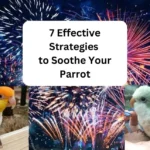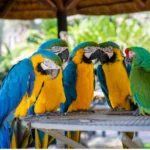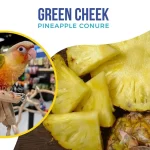

5 Important Bird Food Ingredients Your Bird Needs
Birds are delightful pets to have at home. They are intelligent, social, and have unique personalities. Providing them with the right nutrition is essential to ensure their health and happiness. And when it comes to bird food, there are a lot of options available in the market, but do you know what is in your bird’s bowl? Understanding bird food ingredients can help you make informed decisions about what to feed your feathered friends.
Bird food is made up of different types of ingredients. Some are nutritious, while others are fillers. Here are some of the common bird food ingredients and what they do:
1. Grains and Seeds:

Grains and seeds are a crucial component of bird food, as they provide birds with essential nutrients necessary for their survival and well-being. Grains like millet, sorghum, and oats are rich in carbohydrates, which provide birds with energy for their daily activities, such as flying and foraging. Seeds, on the other hand, are excellent sources of protein, fiber, vitamins, and minerals, all of which are essential for maintaining healthy feathers, bones, and muscles.
Birds have different dietary requirements depending on their species, but most of them require a mix of grains and seeds to meet their nutritional needs. Overall, including grains and seeds in bird food is crucial for supporting bird health and promoting biodiversity.
2. Vegetables and Fruits:

Vegetables and fruits are an essential part of a balanced diet for pet birds, as they provide a wide range of nutrients that support their health and well-being. Incorporating vegetables and fruits into your pet bird’s diet can also provide mental stimulation and enrichment. Many birds enjoy playing with and foraging for fruits and vegetables, which can help alleviate boredom and reduce stress levels.
However, it’s important to note that not all fruits and vegetables are safe for birds to eat, and some may be toxic or harmful to their health. It’s crucial to research which fruits and vegetables are safe for your particular bird species and to consult with a veterinarian or avian nutrition expert to ensure that your pet bird’s diet is balanced and meets their specific nutritional needs.
3. Pellets:
Pellets are an important part of a healthy diet for pet birds, as they are specially formulated to provide a balanced and complete source of nutrition. Unlike seed-based diets, which can be high in fat and low in essential nutrients, pellets provide birds with a consistent source of vitamins, minerals, and protein, all of which are essential for maintaining good health.
However, it’s important to note that not all pellets are created equal, and some brands may be of lower quality or contain fillers that provide little nutritional value. It’s crucial to research different pellet brands and choose a high-quality option that is appropriate for your pet bird’s species, age, and health status.
4. Nuts:

Nuts can be a nutritious and tasty addition to a pet bird’s diet, but it’s important to feed them in moderation. Nuts are high in fat and calories, and excessive consumption can lead to obesity and other health problems. However, when fed in small quantities, nuts can provide birds with essential nutrients like protein, healthy fats, and vitamins.
When offering nuts to your pet bird, it’s important to avoid salted or flavored varieties, as these can contain additives that are harmful to birds. Overall, nuts can be a healthy and enjoyable treat for pet birds, but should be fed in moderation as part of a balanced diet.
5. Insects:
Insects can be an important source of protein for pet birds, especially for those that are insectivores in the wild. Insects like mealworms, crickets, and waxworms are packed with nutrients like protein, calcium, and vitamins, which can help support strong muscles, healthy bones, and a robust immune system.
When choosing bird food, it’s essential to read the label carefully. Look for foods that are high in quality ingredients and free from artificial preservatives and colors. Avoid foods that contain fillers like corn and wheat, as they provide little nutritional value.
It’s also important to note that different species of birds have different nutritional requirements. For example, a parrot’s diet will differ from a canary’s. Consult with an avian veterinarian to determine the best diet for your bird.
In conclusion, understanding bird food ingredients is vital for providing your feathered friends with the best nutrition. By feeding your bird a healthy and balanced diet, you can ensure that they live a long and happy life.
At Dallas Parrots, we offer a wide range of bird food products that are carefully selected to meet the nutritional needs of different bird species. Visit our store today and talk to our experts to find the best food for your bird.


